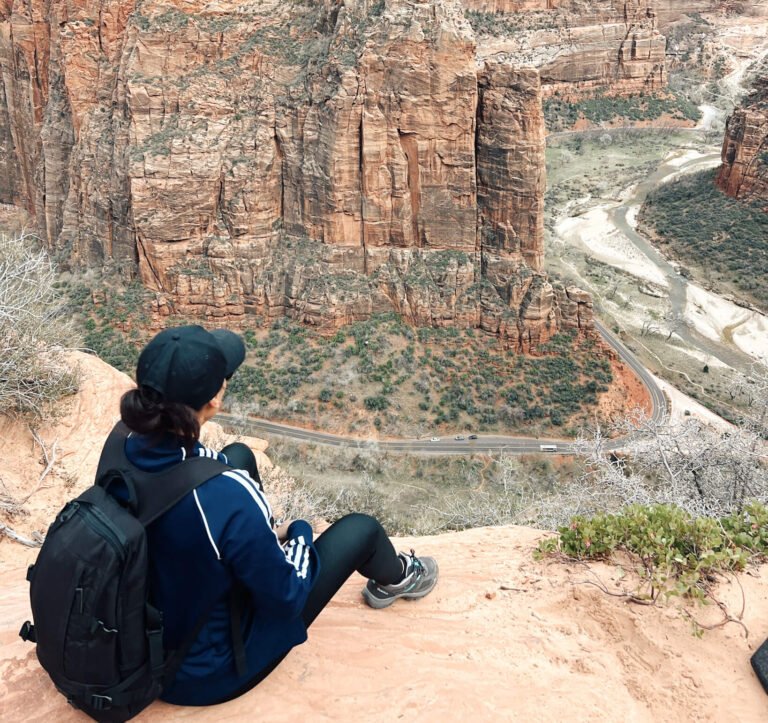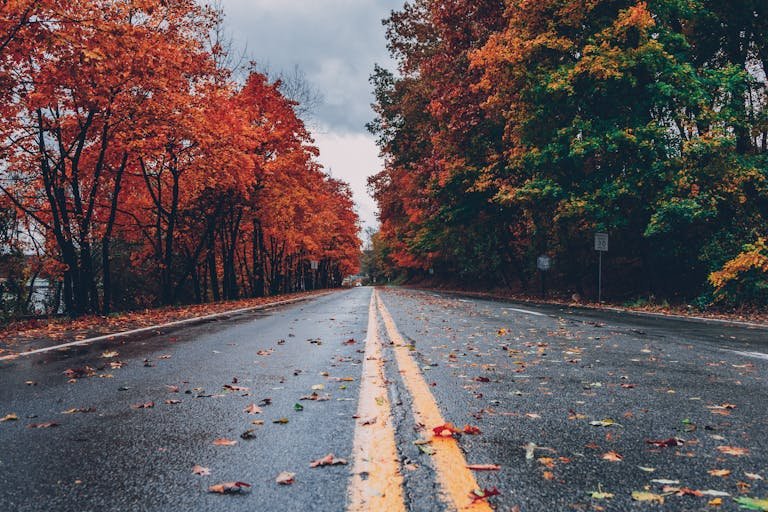27 Proven Solo Female Travel Safety Tips That Could Save Your Trip

I wish I had known all these solo female travel safety tips before I made my first solo trip. They would have probably saved me a lot of travel mishaps. Like learning the hard way that you should never save on safety.
But here I am, more than a decade later, still travelling solo. Those mistakes made me so much wiser and more confident. If you’re new here, I made it my mission to be your big solo travel sister, inspiring, encouraging, and teaching you how to travel solo.
Travelling solo isn’t scary. The world isn’t out to get you, kidnap you or kill you when you’re travelling alone as a woman. There are bad people everywhere, including in your home town.
Do you need to use your common sense and plan things wisely? Obviously! Let me help you with the first steps of getting ready for your first solo trip. These safety tips are a must for every solo female traveller.
other posts you may like
- 27 Proven Solo Female Travel Safety Tips That Could Save Your Trip
- The Best Tips For Women Hiking Alone: How To Stay Safe
- 12 Life-Saving Travel Safety Accessories for the Female Solo Traveller
- Must-Have Guide for a Solo Female Road Trip: How To Stay Safe
- Travelling Solo For The First Time: A Guide For Women
- How To Choose The Perfect Hotel In 5 Simple Steps For Solo Female Travellers
- Top 10 Charming Spring Destinations For Solo Female Travellers In 2025
- This Is In My Travel Safety Kit For Women Who Love To Travel
- 12 Must Know Tips How To Stay Safe As A Solo Female Traveller
- Top 12 Perfect Fall Destinations For Solo Female Travel
- The 5 Best Solo Female Travel Destinations In Europe in 2025
- 30 Expert Solo Female Travel Tips You Want to Know Before Your First Solo Trip
How safe is it for women to travel solo?
Travelling alone as a woman can be incredibly empowering and rewarding, and it will be safe with the right preparation and awareness. Just like at home, safety is often about being aware of your surroundings, trusting your instincts, and having a solid plan.
While it’s true that some destinations are more female-friendly than others, solo travel doesn’t have to be scary. Doing a bit of research beforehand, like checking local customs, reading up on safe neighbourhoods, and understanding the culture, can make a big difference.
Staying in reputable accommodations, using trusted transport options, and keeping in touch with friends or family back home adds an extra layer of security.
What is the safest country to visit as a woman travelling solo?
There are so many safe and amazing destinations in the world where a woman can travel safely. Every destination is different, of course. But as someone who has travelled to over 70 countries, these are my top destinations.
- Japan
- South Korea
- Thailand
- Singapore
- Hongkong
- Most countries in Europe, like Portugal and Greece (with a little extra precautions for pickpockets and if you like to go clubbing)
Is it safe to stay in a hotel alone as a woman?
Absolutely! I always prefer hotels over Airbnb because a proper hotel usually has a 24-hour reception, and you’re surrounded by other guests, which adds an extra layer of safety. It’s important to do your research—look for a reliable hotel with great reviews, in a safe neighbourhood, close to public transport, and well-lit at night.
Make sure your room has a secure door bolt, and trust your gut about the overall vibe. Never prioritise budget over safety, it’s just not worth the risk. Your peace of mind is priceless, and if something feels off, don’t hesitate to leave and find somewhere safer.
How to stay safe as a solo female traveller?
Staying safe as a solo female traveller isn’t all that different from staying safe at home. Sure, every destination is unique, and safety can vary between big cities and small towns, but the core safety precautions for women stay the same.
It often feels riskier simply because you’re out of your comfort zone in an unfamiliar place. That’s normal. But with the right preparation, there’s no need to stress.
Do your research, avoid areas known to be unsafe for anyone, skip risky activities on your own, stay aware of your surroundings, and always trust your gut. With that mindset, you’re good to go.
And if you need someone to talk to, check out my solo travel coaching program.
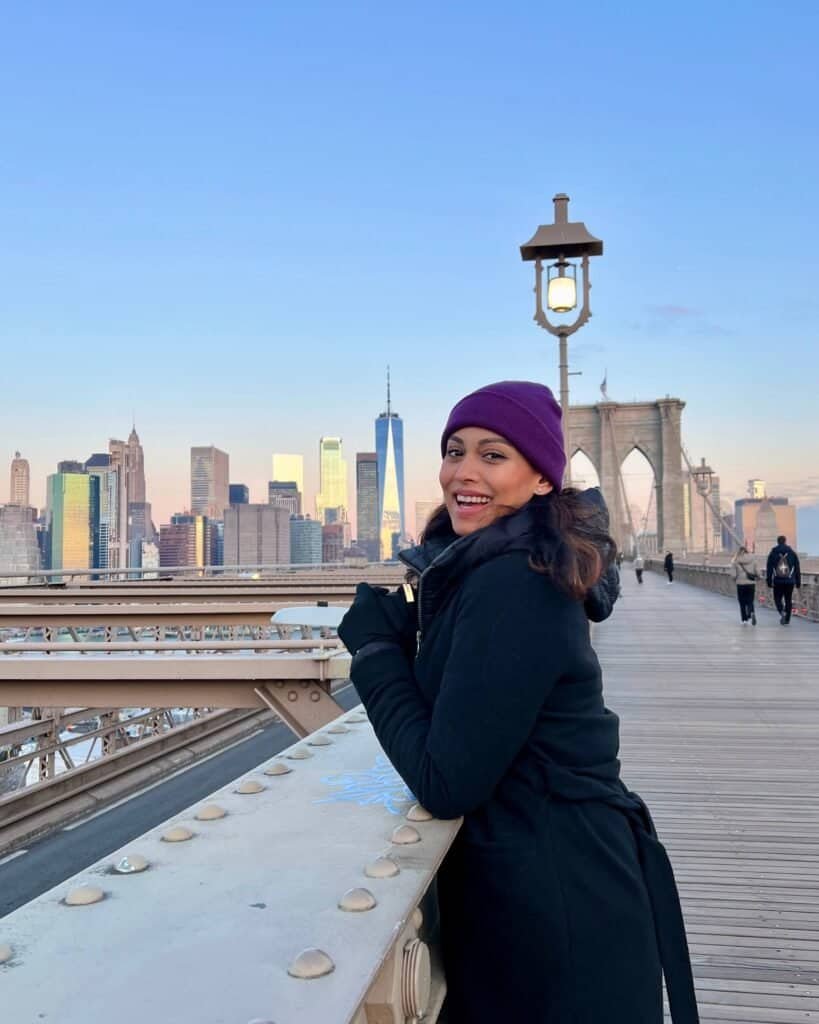
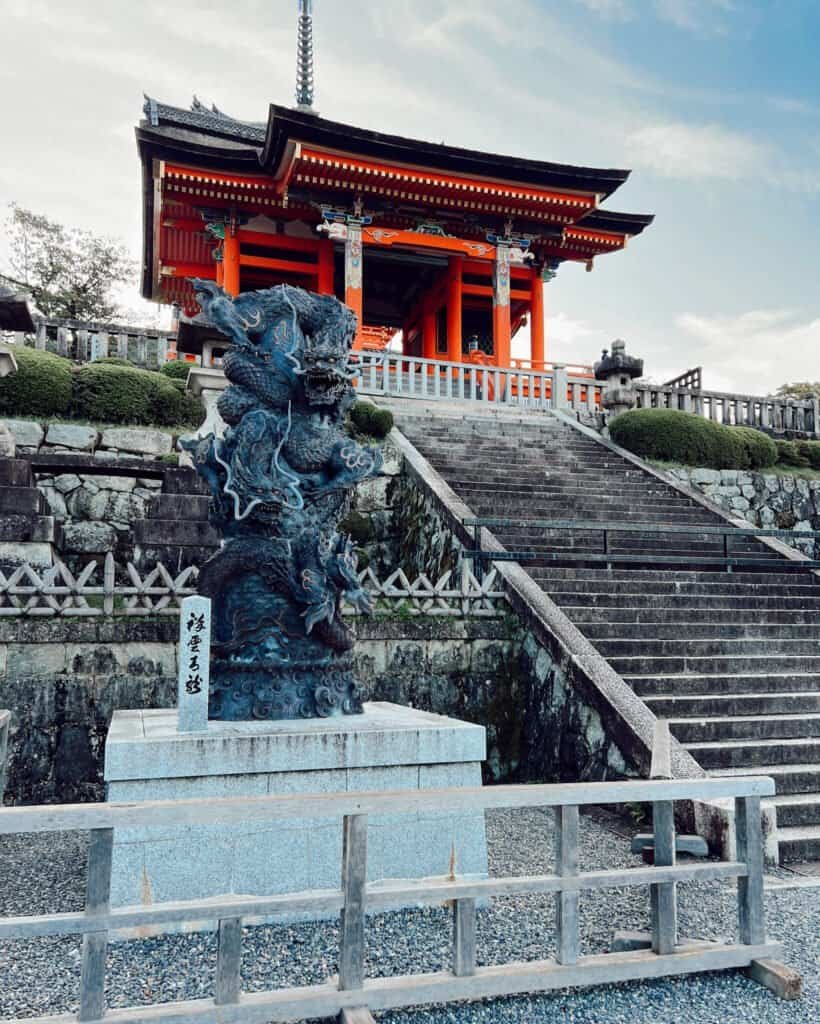
Proven Solo Female Travel safety tips for women
1. Research your destination
Always research your destinations properly. Research is key to preparing you for your solo trip and anything that could happen. There’s no such thing as being overprepared.
I’d rather be overprepared than underprepared. Does that make sense?
Everything you know about your destinations is important. Use travel blogs, travel books and advice from other travellers to get information.
2. Always get Travel Insurance
Never go on a solo trip without proper travel insurance. You never know what might happen when travelling in another country, and you don’t want to find out without travel insurance.
Travel insurance covers your expenses when you need medical help or any other help from unfortunate events while travelling, like theft or illness.
I grew up with the importance of insurance. I live in a country where insurance is a standard expense in any adult’s household. Travelling without travel insurance is a big no for me!
>> If you don’t have travel insurance, check out Safetywing!
3. Use Revolut for payments
Get yourself a “debit credit card” like Revolut. This will prevent you from fraud, and most debit and credit cards don’t charge extra fees on cash withdrawals or payments in another currency.
Revolut’s benefits are similar to those of credit cards in the US, meaning they come with benefits and ways to earn points/ rewards.
The biggest difference is that credit cards don’t have a limit, so you can spend money you don’t have. You need to add money to the account.
Your credit card company will most likely charge you for foreign currency payments, and the local bank will charge you a fee, too. However, you can skip those fees with a Revolut card.
The higher your plan (I use the free plan for now), the more benefits you’ll get, like insurance, airport lounge access, gym membership and more.
4. Always have a little bit of local currency
Always keep your cash and credit cards separate, and never leave your hotel with all of them on you. This way, if something happens when you’re out, you at least have different cards and cash in your hotel.
Losing all your cards and cash would be a nightmare.
5. Leave your Valuables in your hotel
Before you leave the hotel, lock your suitcase and keep your valuables in the room safe. Bad people are everywhere, and it’s not worth the risk.
If you don’t need cleaning, hang the ‘don’t disturb’ sign on the door.
6. Make photocopies of important documents
Always keep photocopies and physical copies of important documents when travelling. Keep them on your phone, email, and Google Drive, and bring a few photocopies.
I always bring a photocopy of my passport with me.
7. Leave your passport in your hotel
Depending on the destination, I always keep my passport safe in my room and bring a physical photocopy of it with me, along with my driver’s licence.
Do whatever feels good to you, though. Unless you’re doing something that will require your passport, I think it’s safer to leave it at the hotel.
If you take a day trip and leave the city, bring your passport. For some destinations, you’ll need your passport for tax-free shopping. But other than that, I think your driver’s license (a Western driver’s license in English) will be sufficient.
8. Get an e-SIM to avoid data roaming
Unless you have an international cell phone plan, I highly recommend getting a local SIM card or (even better) an e-SIM. An e-SIM can be set up digitally on your iPhone without the hassle of changing SIM cards.
I recommend looking into Flexiroam or Airalo. While sometimes setting up might be confusing, Flexiroam offers great prices (they have frequent discounts), and you can buy regional or global plans.
Perfect if you’re travelling to multiple destinations. I’ve been using Flexiroam since I started travelling internationally, and besides a few hiccups before their latest update, I’ve been pleased with them!
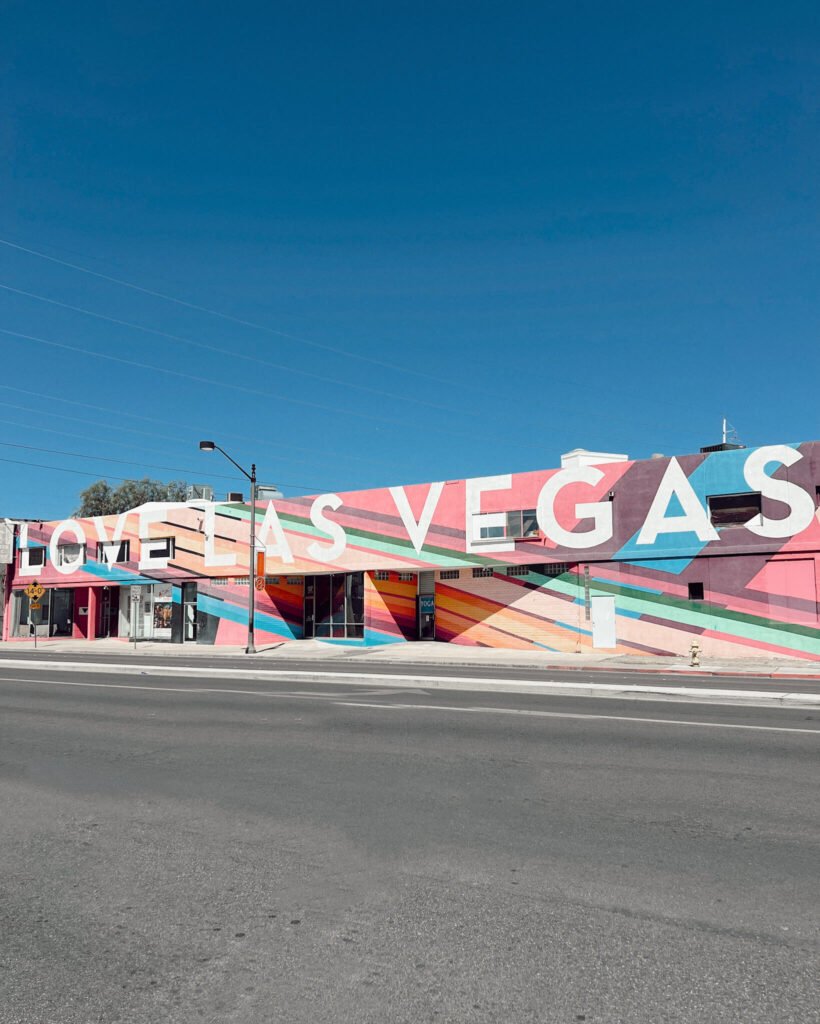
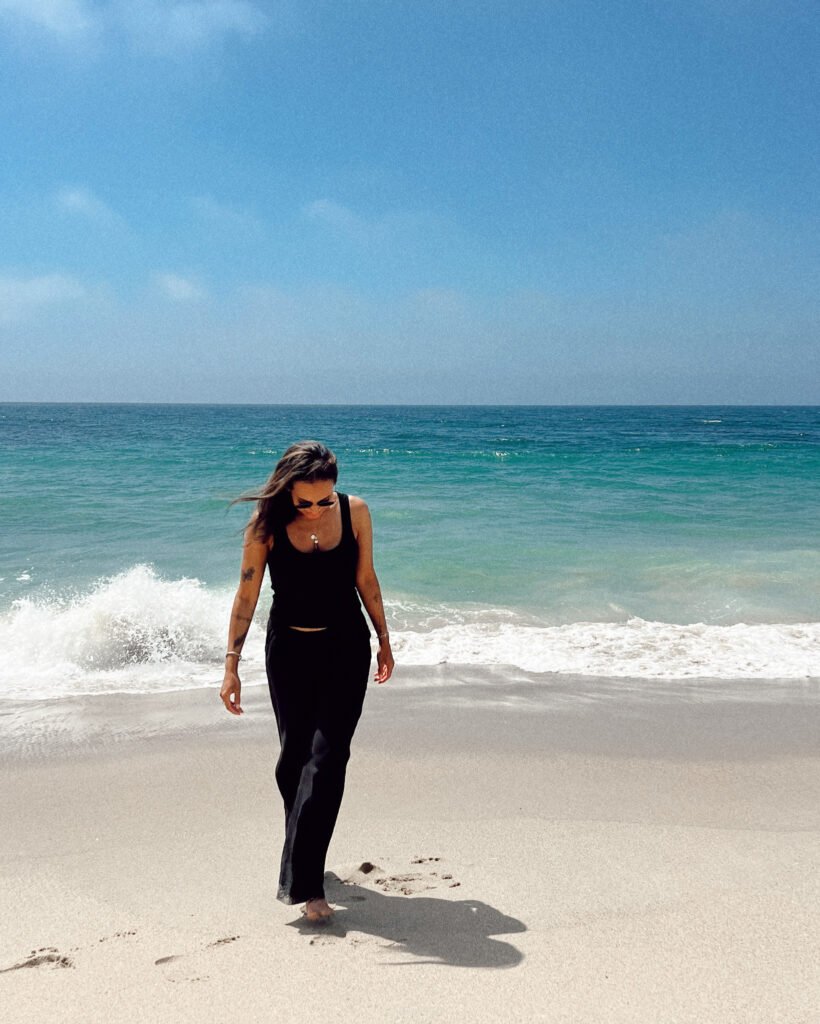
9. Use WhatsApp to communicate with home
WhatsApp is how to communicate worldwide when travelling (it’s already common in Europe). The good thing about WhatsApp is that it always works on data roaming/Wi-Fi for messaging and (video) calls.
WhatsApp will keep your primary phone number when using a different SIM card. Your friends and family can always reach you via WhatsApp at your primary phone number!
WhatsApp is also a way to communicate with other travellers. Not everyone uses an iPhone to use for texting. Keep that in mind.
10. Research Local scams
When planning your trip, always research local scams or safety issues to look out for. Every destination is different, so proper research is key.
Europe, for example, is famous for pickpockets, while in some places in the US, car robberies are common. You’ll find many videos on social media about sketchy street vendors, scamming taxi drivers, or shady money exchange offices.
Always be aware of your surroundings. People are coming close to you, people are approaching you, or strangers are offering something.
Sure. Maybe someone doesn’t mean any harm. But some of them do, and that’s how most scams start.
11. Arrive in the daytime if you can
Try to book a flight that arrives in the daytime. It is safer because there are more people out. Getting to your accommodation after dark in a place you don’t know might be daunting.
Sure, unless you know your destination and have it figured out. Other than that, don’t take risks.
For example, I’m planning a solo trip to Mexico this fall (2024) and looking at my flight options, I’ll arrive at the beginning of the evening. There’s no way around it.
Safety-wise, in a destination like Mexico, travelling alone, not knowing the destination, and not speaking the language, I will arrange for a private driver to bring me to my accommodation.
30 Expert Solo Female Travel Tips You Want to Know Before Your First Trip
12. Always bring your phone charger
Always bring your phone charger and a power bank. Always. I’ve been stranded a few times in a destination where English wasn’t widely spoken. Even in a safe destination, you are helpless if you can’t communicate and navigate.
13. Keep a journal
Write down your emergency numbers in a journal or notebook. If your phone gets stolen, you’ll have important information written down.
14. Write down the nearest Subway
When relying on public transport, always have the nearest subway written down somewhere and on you. If your phone dies, you’ll at least know which subway station to go to.
15. Bring a Door Lock
Established hotels have rooms with a door bolt. If there isn’t one, get yourself a safety lock so no one can enter the room when you’re inside. Trust me. You’ll sleep a lot better.
Reputable hotels always have door bolts and a peephole, and you’ll need a key to access the room floors.
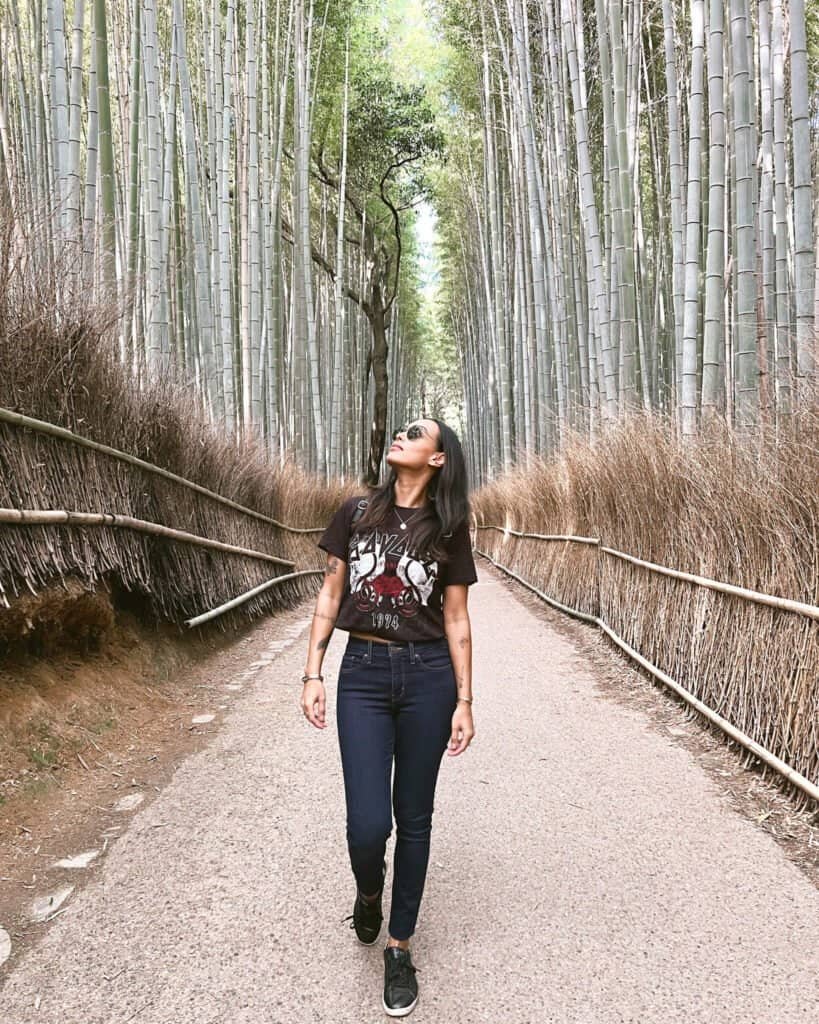

16. Pay attention to your belongings
Never put your valuables in your backpack without being highly aware all the time (unless you’re in South Korea or Japan). Pickpockets are paying attention to you to see if you’re a target.
Don’t be an easy prey. Keep your backpack in front of you and keep your hand on it in crowded public places. Be suspicious when people approach you and come close.
Bring a smaller crossbody purse or pouch for essentials like a wallet, passport, room key, and iPhone charger. Keep that one with you all the time and closed. Keep your hand on it in crowded touristy places.
Bring a waterproof iPhone pouch or a waterproof dry bag to the beach. Never leave your valuables on the beach while swimming. This way, you can keep them with you.
17. Never flash expensive Jewellery
For some destinations (South America or South Africa), it is better not to wear jewellery to draw attention. I leave everything in my hotel or even at home. It’s not worth it.
18. Use a proper ATM located inside a bank
When taking cash from an ATM, always use ATMs inside a bank. Some destinations are famous for skimming ATMs, like in Bali or Europe.
19. Get an iPhone case with a Lanyard
Get yourself an iPhone case with a lanyard. I have been using one for years, and I love it! You have your phone on you like a crossbody purse, so no more excessive checking if it’s still there.
That’s what I would do. I constantly checked my purse to see if my phone was still there.
It’s also super handy when constantly taking photos or videos. You don’t have to take it out of your purse the entire time.
20. Bring the Hotel business card
Before you leave the hotel, take a business card from the hotel (especially if the local language has a different script) so you can show this when asking for directions or taking a taxi.
21. Always use an official Taxi or Uber
Never use unofficial taxis. Just never. Preferably, you should always use a taxi app like Grab, Uber, or Lyft. At least your ride is tracked, and you see the price upfront.
In my experience, taxi drivers are the biggest scammers for tourists! Take a taxi from an official taxi stand.
22. Never keep your Room key in the holder
Never keep your room key in the cardholder they put it in. Remove it and throw it away! Take a photo of your room number on your phone. If you keep the room key in the holder and lose it, you’re giving thieves the key, the address of your hotel, and the room number.
A co-worker made this mistake not long ago and lost his room key at the hotel pool. Before he realised his room key was gone, so was his hotel room.
Someone came in and took all his valuables.
23. Use Find Your iPhone
Keep a family member or friend linked in the ‘Find Your iPhone’ app; this way, someone at home can always track where you are. My brother is linked to my iPhone and can always see where I am.
Even though it’s not super accurate on location, your friends and family will still know which destination you are.
24. Keep in touch with Family
Send your itinerary, flight details, and accommodation details to your family or a friend. Even if you don’t have your whole trip figured out, it’s always important to let someone know your plans.
25. Book adventurous activities with a tour
If you go on adventurous activities alone, always keep someone in the loop. There are stories of hikers getting lost without anyone knowing, and we don’t want to be that person.
Adventurous activities should never be done alone, especially if you’re not from the area. Don’t go hiking alone in the mountains in the middle of nowhere, where there’s no trail or cell phone service.
That’s asking for problems.
>> Need awesome tours or activities? I always use Get Your Guide!
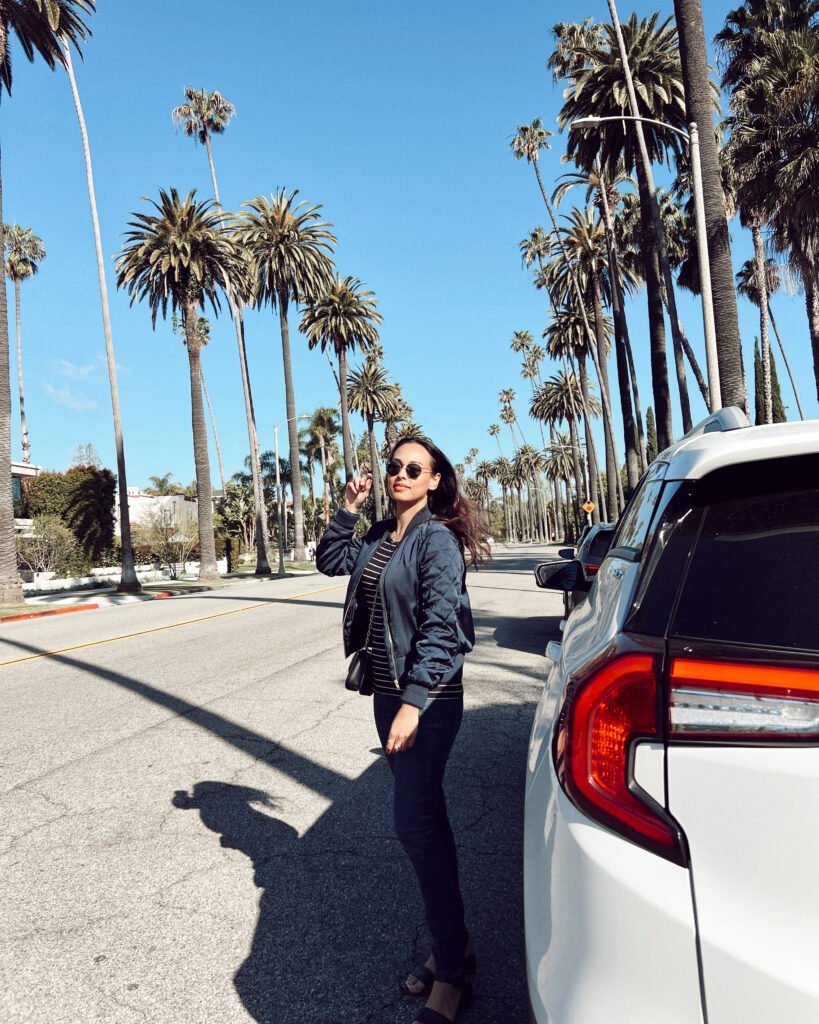
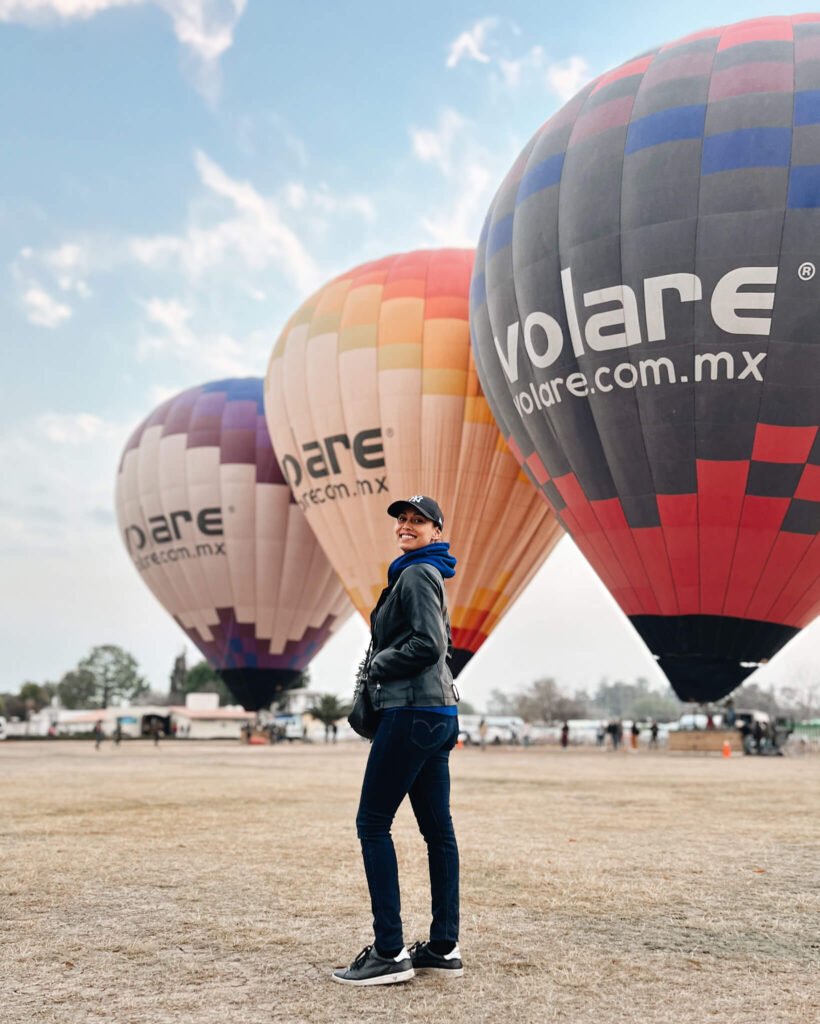
26. Download offline Google Maps
Always check Google Maps to see how far your accommodation is from the city centre and the airport (or any port of arrival). Also, check the walking distance and public transport. You don’t want any surprises when arriving.
If it looks like it’s going to be a hassle, make arrangements before arrival. A few years ago, I made a solo trip to Bali and read online that finding transportation is annoying.
I arranged for a private driver, which was indeed the best decision ever.
27. stay in hotels over Airbnb’s
I don’t stay in Airbnb over hotels. Airbnb is privately owned, so you have no idea what you will encounter. I’m not saying that Airbnb can be a great experience, but maybe not for a first solo trip.
I’d recommend choosing an established hotel that feels safe with other travellers and maybe has a reception to reach out to. This is an important part of safety tips for solo female travellers.
>> I always use Booking.com to book my hotels. I love their platform, and the more you book, the better the discounts. I’ve compared them with other platforms, and they’re truly the cheapest.
Plan your trip
With my online resources
Use my travel planning roadmap with all my digital resources to book every detail of your trip!
There you have it! These are my top safety tips every solo female traveller should know about! These female solo travel safety tips will help you to travel solo safely, confidently and smarter!
Let me know how you get on with these tips! If you have any questions, I’m here to help. The fastest way to reach me is by commenting on my latest Instagram post.
P.S. Before you go! I just want you to take a look at the She Birdie Safety Alarm! This awesome safety whistle is great to always have on you travelling or not.




